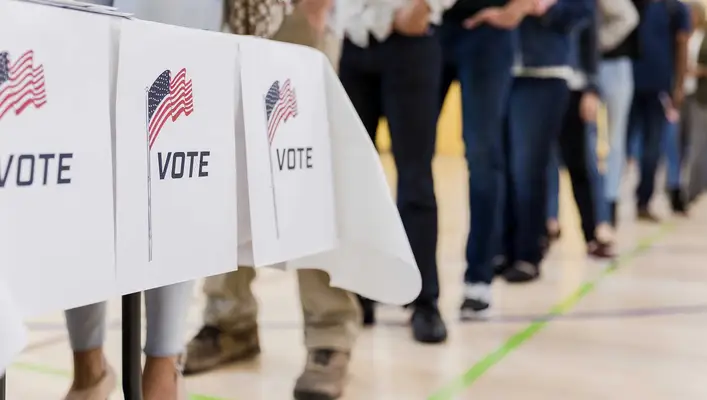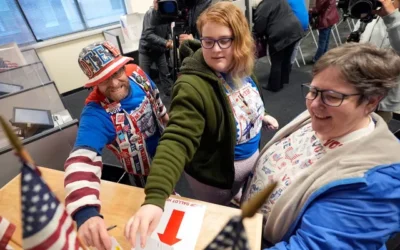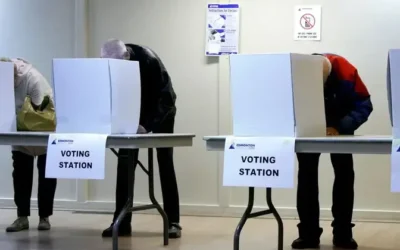As the 2024 presidential election approaches, one of the most pressing issues in the United States remains housing affordability.
With home prices and rental costs soaring across the country, millions of Americans are struggling to find affordable housing.
This article explores how the housing affordability crisis could become a central issue in the upcoming election, influencing policy discussions and shaping voter priorities.
The State of the Housing Market in 2024
The U.S. housing market in 2024 remains one of the most challenging for homebuyers and renters alike. According to the National Association of Realtors (NAR), the median home price nationwide is approximately $416,000, up from $374,000 just two years ago. Similarly, the rental market has seen consistent increases, with the average monthly rent for a one-bedroom apartment in major cities like New York, Los Angeles, and San Francisco surpassing $2,500.
The affordability crisis stems from several factors:
- Low housing supply: A shortage of available homes for sale has driven prices up across the board. The National Low Income Housing Coalition reports that the U.S. is short by about 6.8 million affordable rental homes for low-income renters.
- Rising mortgage rates: With interest rates hovering around 7%, homeownership has become increasingly difficult for first-time buyers. Many would-be buyers are sidelined, opting to rent instead.
- Stagnant wages: While housing costs have surged, wage growth has not kept pace. According to the U.S. Bureau of Labor Statistics, real wages have only risen by 2% over the past decade, making it even harder for individuals and families to afford adequate housing.
Housing Affordability as a Focal Point in 2024 Election Debates
As voters head to the polls, housing affordability is likely to be a key issue shaping the 2024 election debates. Both Republican and Democratic candidates have acknowledged the problem, but their solutions often differ.
Republican Perspective: Many Republicans, including former President Donald Trump, have advocated for deregulation as a way to increase housing supply and lower costs. They argue that reducing government red tape, such as zoning restrictions and permitting processes, will encourage more development, particularly in high-demand areas.
John Mitchell, a senior housing policy analyst at National Mortgage Advisors, states, "We believe that reducing burdensome regulations will empower private developers to meet the market demand, ultimately driving down housing costs."
Democratic Perspective: On the other hand, Democrats, including Vice President Kamala Harris, emphasize the need for federal intervention to address the crisis. This could include increasing affordable housing funding, expanding housing vouchers, and strengthening rent control measures.
Lisa Reynolds, a housing strategist at Affordable Homes Inc., says, "The housing market can't fix itself. We need government programs that prioritize low- and middle-income families, ensuring that everyone has access to safe and affordable housing."
Key Proposals for Tackling the Housing Crisis
Both political parties have outlined several potential solutions to the housing affordability crisis, which are likely to become hot topics during the 2024 election cycle.
1. Expanding Federal Funding for Affordable Housing
Many Democrats have called for significantly increasing federal funding for affordable housing programs. The Biden administration, for example, proposed investing $150 billion in housing as part of its "Build Back Better" plan. This funding would go toward constructing affordable housing units, offering rental assistance, and supporting first-time homebuyer programs.
2. Deregulating Zoning and Development Laws
Republicans have focused on deregulating housing markets by reducing the restrictions that make it difficult for developers to build. This includes relaxing zoning laws, streamlining building permits, and removing height and density restrictions in urban areas. By making it easier to build, proponents argue, supply will increase, leading to lower prices.
3. Rent Control Measures
Several progressive politicians, including Kamala Harris, have expressed support for expanded rent control measures to limit how much landlords can increase rents each year. While rent control has been implemented in cities like New York and San Francisco, critics argue that it can discourage new construction, leading to long-term supply issues.
4. Housing Vouchers and Assistance Programs
Expanding housing vouchers and assistance programs is another key proposal from Democratic candidates. Programs like the Section 8 voucher system have provided vital support to low-income renters, and many Democrats are pushing to increase their availability and funding.
| Key Housing Proposals | Party | Primary Focus |
|---|---|---|
| Expanding Federal Affordable Housing Funding | Democratic | Increase funding for construction and rental assistance |
| Deregulating Zoning and Development | Republican | Reduce barriers for developers to increase housing supply |
| Rent Control | Democratic | Limit rent increases to protect tenants |
| Expanding Housing Vouchers | Democratic | Provide more assistance to low-income renters |
Current Housing Market Statistics
Several statistics highlight the severity of the housing affordability crisis and underscore why it is likely to be a focal point in the 2024 election:
- Home Price Increases: Home prices have risen by an average of 18% nationwide over the past three years. Cities like Austin, TX, have seen even sharper increases, with prices up 40% since 2020.
- Rent Growth: According to Apartment List, the national median rent is now 15% higher than pre-pandemic levels, with cities like New York seeing increases of up to 25%.
- Mortgage Rates: As of October 2024, the average 30-year fixed mortgage rate stands at 7.1%, making homeownership less attainable for many first-time buyers.
- Housing Supply: The U.S. continues to face a significant housing supply shortage. The National Association of Home Builders (NAHB) estimates that 1.5 million homes need to be built annually to meet demand, but only around 1.2 million are expected to be constructed in 2024.
| City | Average Home Price | Average Monthly Rent |
|---|---|---|
| San Francisco | $1,320,000 | $3,600 |
| Austin | $520,000 | $2,200 |
| New York | $950,000 | $4,100 |
| Dallas | $375,000 | $1,800 |
| Atlanta | $400,000 | $2,000 |
Housing Affordability and the 2024 Election Outcome
The outcome of the 2024 election could have significant implications for housing affordability. A victory for Donald Trump and other Republican candidates could mean a focus on deregulation and market-driven solutions to the housing crisis. On the other hand, if Kamala Harris and her fellow Democrats win, there could be a stronger emphasis on government intervention, rent control, and housing assistance programs.
Matthew Clarke, CEO of Homeowners First, explains, "The election will determine whether we continue to rely on the free market or shift toward increased government involvement. Either way, housing will be a key issue that impacts millions of Americans."
FAQs on Housing Affordability and the 2024 Election
1. Why is housing affordability a major issue in the 2024 election?
Housing affordability has become a critical issue due to rising home prices, rent hikes, and stagnant wages. Millions of Americans are finding it difficult to afford homes or rent, making this a key concern for voters.
2. What policies are being proposed to address the housing crisis?
Proposals include deregulating housing markets to increase supply, expanding federal funding for affordable housing, and implementing rent control measures to limit rent increases.
3. How does deregulation affect housing affordability?
Deregulation can reduce the barriers to building new homes, increasing housing supply and potentially lowering prices. However, critics argue it could lead to overdevelopment and displacement in some areas.
4. What role does the federal government play in housing affordability?
The federal government provides funding for affordable housing, supports programs like Section 8, and enforces fair housing laws. Some politicians advocate for expanding these roles to address the crisis.
5. How are rising interest rates impacting the housing market?
Higher mortgage rates make it more expensive to buy a home, pricing out many first-time buyers and contributing to increased demand for rental properties.
6. Are housing vouchers effective in addressing affordability?
Housing vouchers, like those in the Section 8 program, can help low-income families afford rent by subsidizing part of their payments. However, there is a growing demand for more vouchers as rents increase.
7. Will rent control policies become more widespread?
Rent control is a contentious issue. Proponents argue it protects tenants from rent hikes, while critics claim it discourages new development. The 2024 election could shape how widespread rent control becomes.
8. How will the 2024 election impact future homebuyers?
The election will influence housing policy, interest rates, and affordability programs. Depending on the outcome, homebuyers may see changes in mortgage costs, regulations, and federal assistance programs.

The VA Loan Network Editorial Team is comprised of dedicated mortgage specialists and financial writers committed to providing veterans and service members with accurate, up-to-date information on VA loan benefits, eligibility, and the home-buying process.








